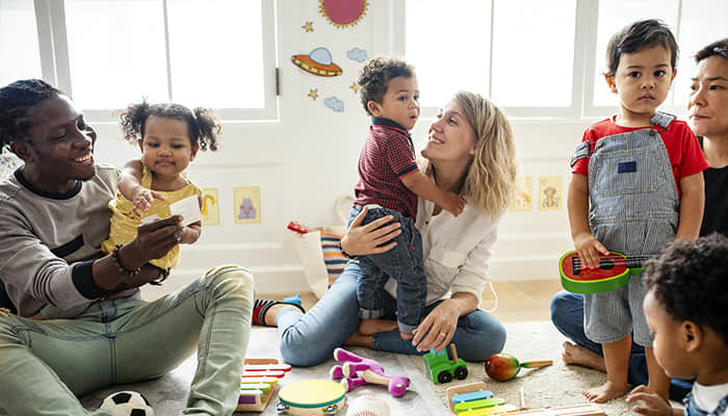Group activities play a crucial role in shaping our children’s social skills, teamwork abilities, and communication. When kids participate in these activities, they learn how to interact with others, work towards common goals, and express themselves effectively. As parents, we often worry about how our little ones will handle new social situations or if they’ll fit in. But don’t fret! We’re here to explore some strategies that can help ease these concerns and set your children up for success in group settings.
Addressing Social Anxiety
It’s completely normal for children to feel nervous about new social settings. My daughter used to hide behind my legs whenever we went to a new playgroup! Here are a couple of ideas that worked for us:
- Start small: Try arranging playdates with one or two friends before diving into larger group activities.
- Role-play at home: Practice introductions and small talk with your child. It can be a fun game and help build their confidence.
Remember, every child is different, so be patient and celebrate small victories along the way.
Finding the Right Activity
The key to getting kids excited about group activities is finding something that aligns with their interests. When my son showed an interest in dinosaurs, we signed him up for a paleontology camp, and he loved it! Here’s how you can find the perfect fit:
- Talk to your child about their interests and what they’d like to try
- Look for trial classes or open days where your child can get a taste of the activity
- Be open to unexpected choices – your quiet bookworm might surprise you by wanting to try drama class!
Balancing Time Commitments
It’s easy to get caught up in the excitement of new activities, but remember that balance is key. We want our kids to have fun and learn new skills, but not at the expense of family time or schoolwork. Here’s what works for our family:
- Create a weekly schedule that includes school, homework, family time, and activities
- Be flexible – if your child seems overwhelmed, it’s okay to scale back
- Make sure there’s plenty of downtime for free play and relaxation
Navigating Peer Pressure
As our kids start spending more time in group settings, we might worry about negative influences from peers. Here’s how we can help our children stay true to themselves:
- Have open discussions about values and decision-making
- Role-play scenarios where they might face peer pressure
- Reinforce the idea that it’s okay to say “no” to things that make them uncomfortable
Remember, these conversations are ongoing. Keep the lines of communication open and be ready to listen without judgment.
Evaluating the Quality of Instruction
When it comes to organized activities, the quality of instruction can make or break the experience. Before signing up, do a bit of research:
- Read reviews from other parents
- Ask about the instructor’s qualifications and experience with children
- Observe a class if possible to see how the instructor interacts with kids
Don’t be afraid to chat with the instructors about your child’s needs or concerns. A good instructor will welcome parent involvement and communication.
Overcoming Initial Resistance
Sometimes, even when we find the perfect activity, our kids might be reluctant to give it a try. Here’s how we can gently encourage participation:
- Share your own experiences with trying new things
- Offer to attend the first few sessions with them for moral support
- Emphasize the fun aspects of the activity rather than potential achievements
Remember, the goal is to encourage, not pressure. If your child doesn’t enjoy an activity after giving it a fair try, it’s okay to look for alternatives.
Fostering a Supportive Environment
As parents, we play a big role in creating a positive atmosphere for our children’s activities. Here’s how we can be their biggest cheerleaders:
- Listen actively when they talk about their experiences
- Celebrate their efforts and improvements, not just achievements
- Address any concerns or problems promptly and positively
I remember how proud my daughter was when she finally managed to do a cartwheel in gymnastics class. We celebrated with her favorite ice cream, and her smile was priceless!
Building Confidence and Social Skills Through Group Activities
Group activities offer fantastic opportunities for our children to grow, learn, and have fun. By carefully choosing activities, supporting our kids through challenges, and maintaining open communication, we can help them thrive in these settings. Remember, every child is unique, so be patient and enjoy watching them discover their passions and strengths. Here’s to many adventures and new friendships for our little ones!

